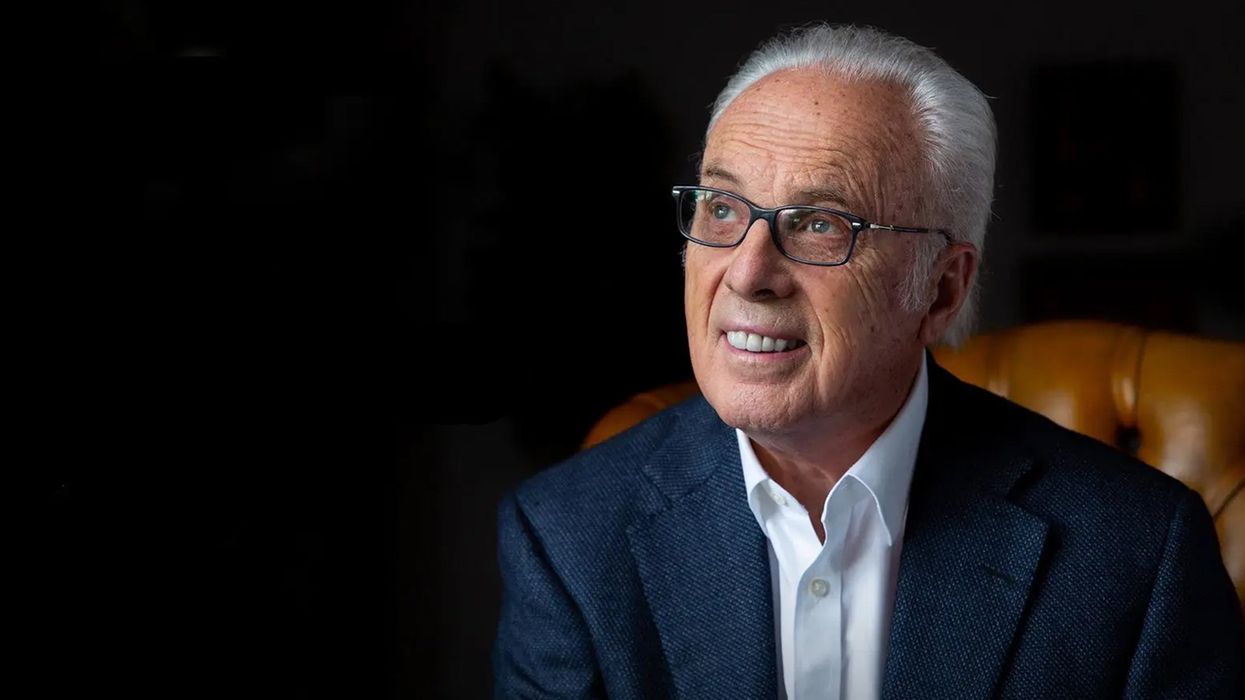
Grace Community Church

Thank you, Pastor MacArthur, for showing a skeptical world what unwavering devotion to Christ looks like. Your faithful stand leaves footsteps worth following.
Los Angeles megachurches often resemble their Hollywood neighbors — grand stage sets with top-tier lighting and sound, carefully produced services complete with scripts, soundtracks, and a live audience. They usually plant themselves in the “nice parts of town” — Hollywood Hills, Santa Monica, Pasadena. Perfect if you’re after a Sunday pep talk and a little feel-good music to carry you through the week.
But that was never Grace Community Church with John MacArthur at the pulpit.
MacArthur never chased applause or tailored sermons to flatter the mood of the age.
Unlike many pastors leading congregations of similar size, MacArthur, who died Monday at the age of 86, didn’t preach to people hoping to make them “feel better” about themselves. He preached to dying souls, convinced he held the only message that could save them: the gospel — the real, unvarnished gospel of Scripture.
“Being a pastor means you’re a truth-teller,” MacArthur once said. And the truths proclaimed from his pulpit often rubbed people the wrong way, both inside and outside evangelical circles. Statements like, “The whole purpose of the Christian message is to confront the sinner’s sin so you can call the sinner to repentance and forgiveness,” or, “The true gospel is a call to self-denial. It is not a call to self-fulfillment,” clash with a world that prizes non-judgment, self-indulgence, and endless comfort.
But for those who’ve discovered how hollow those things truly are, MacArthur’s words struck hard — painfully, yet like cool water on the cracked lips of a wanderer lost too long in the desert.
He stood nearly alone in the upper echelon of church notoriety, refusing to bend on the bedrock truths of the Christian faith for the sake of publicity, celebrity congregants, TV slots, or social praise.
MacArthur cared about one thing: reaching lost souls with the only message that could rescue them. It either turned you away like an offensive painting or drew you in, like peering into a dense, bristling forest from the window of a climate-controlled, sterile cell.
My family was among those drawn in.
It took us years to find a church home after moving from rural Virginia to Southern California. Until we settled into a small local congregation in northwest L.A., we often trekked to Sun Valley for one reason: the teaching at Grace Community Church. My parents had listened to MacArthur’s sermons for years back east. Amid the chaos of starting over out west, they knew they could rely on him for a feast of biblical preaching — the kind that made the gospel, not man, the focus.
As a kid, I never noticed much about Grace’s neighborhood. My 10-year-old eyes skipped past the barred windows, the tiny houses jammed with large families, the rows of homeless encampments along Wilshire Boulevard. Only when I returned as an adult did I grasp just how far Grace was from Beverly Hills. This was the hood. And Grace Community Church didn’t just happen to be there — they chose it.
Across the street stood Wat Thai, a historic Buddhist temple serving Sun Valley’s Thai, Vietnamese, and Cambodian communities. Just down the road, the Hilal Islamic Center ministered to the area’s Muslim residents.
The church building itself preached its own sermon. Unlike so many of L.A.’s glittering megachurches, Grace displayed a simple cross, adorned only with a wreath at Christmas. No fog machines, no laser shows — just a traditional choir and orchestra. Even after we found our local church more than an hour away, we never missed Grace’s Christmas concert. Just Google it, and you will get a glimpse into how special the church’s worship is.
Grace’s surroundings and the sanctuary delivered the same message: The gospel doesn’t belong to a single ethnicity, culture, or political camp. It doesn’t need to be repackaged or softened to reach the world. It simply needs to be proclaimed, boldly and without apology.
And that’s exactly what John MacArthur devoted his life to doing.
He never ducked controversy when conviction demanded courage. During the COVID lockdowns, when Los Angeles banned in-person worship, MacArthur stood behind his pulpit and delivered his landmark sermon “Christ, Not Caesar, Is Head of the Church,” in which he boldly declared, “We cannot and will not acquiesce to a government-imposed moratorium on our weekly congregational worship or other regular corporate gatherings. Compliance would be disobedience to our Lord’s clear commands.”
That Sunday, I sat in the congregation. For the first time in more than a year, after countless Zoom services, I worshiped shoulder to shoulder with fellow believers as the choir and orchestra swelled. Tears filled nearly every eye in the room. It was a moment I’ll carry forever — the last time I heard, and now will ever hear, John MacArthur preach in person.
RELATED: John MacArthur refused to compromise. Gavin Newsom learned the hard way.

MacArthur’s ministry outlasted the snares that took down so many other pastors with similar reach. He never chased applause or tailored sermons to flatter the mood of the age. Yet he could speak just as powerfully on Ben Shapiro’s stage as he did on Larry King’s. That’s because he never shifted his conviction. The gospel he preached to a conservative Orthodox Jew was the same gospel he preached to liberal Hollywood skeptics and suburban churchgoers.
Long after the lights fade on L.A.’s big productions, the legacy of that quiet, sturdy pulpit in Sun Valley will endure. It reached me. It reached countless others. It stands as proof that when you preach Christ — not entertainment, not cultural trends, not political hobbyhorses — the gospel still does exactly what God promises it will do: save sinners and transform lives.
We lost a giant of the faith this week. Just as we’ve grieved R.C. Sproul, Tim Keller, and other pillars over the past decade, the church will deeply miss John MacArthur’s steady, trustworthy voice. Being an uncompromising Christian is only growing more difficult in today’s climate, even in the so-called Christianized West. MacArthur’s passing widens the void left by those who went before him, and younger voices who might fill it seem few and far between.
I hope I’m proven wrong. I hope many pastors rise with the same fearless conviction. If they do, they likely owe that spirit in part to the influence MacArthur had on believers across decades of faithful service to the Lord and his church.
Thank you, Pastor MacArthur, for ministering to the hearts, minds, and souls of countless people — including my family. Thank you for urging us to cultivate awe for the beauty of Scripture, reverence for the holiness of God, and a deep love for our Savior, Jesus Christ. May you rejoice now in His presence, after a life faithfully stewarded for His glory.
Katarina Pfister